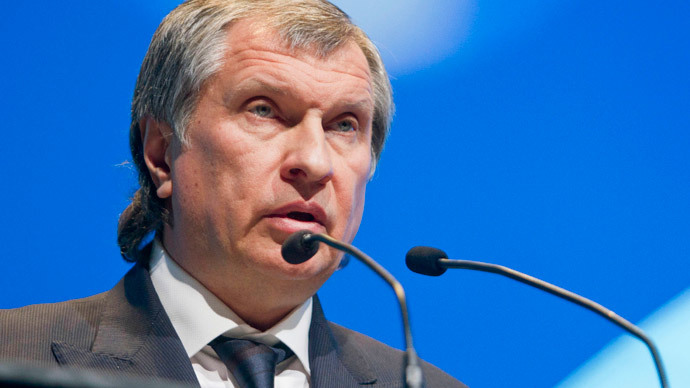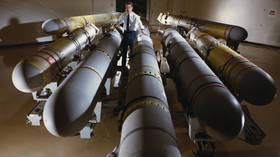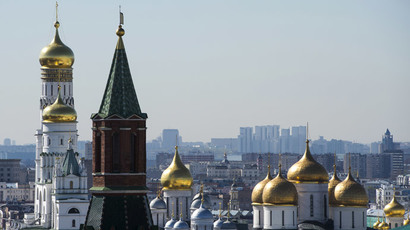EU sanctions are ‘stupid’ and will ‘sabotage’ the West – Rosneft spokesperson

A list has surfaced containing the names of more than 100 Russian businessmen and politicians allegedly targeted for EU economic sanctions. German newspaper Bild reported Igor Sechin, CEO of the world’s largest-listed oil company is on the list.
Alexey Miller, head of state-owned Gazprom and Vladimir Yankunin, who runs Russian Railways, are both rumored to be on the "list".
"This is stupid, petty and obvious sabotage of themselves most of all," Rosneft spokesman Mikhail Leontyev said by phone, Reuters reports.
Rosneft’s official comment echoes that of Sergey Lavrov, Russia’s foreign minister, who warned any sanctions against Moscow will have a “boomerang” effect.
"I hope this all ends up as being empty rhetoric," Leontyev said in response to the Bild’s report that Sechin is on the list of key targets.
The US and EU have warned that Russia’s actions in Crimea will be followed by economic sanctions, and it won’t be “business as usual” with Russia. More precise actions are expected on March 17, following a referendum vote in Crimea taking place this Sunday.
On Wednesday, the EU agreed to issue visa bans and freeze assets of anyone who was “responsible” for undermining the territorial integrity of Ukraine, including key politicians, state-owned banks, commercial organization, and other state agencies.
In response, Russia said it could issue counter sanctions against the EU and US if they push sanctions, which may include freezing the assets of Western companies and individuals.
Rosneft has increased earnings this year by more than 50 percent, company officials announced on Tuesday. Rosneft accounts for 40 percent of Russia’s oil output.
Rosneft’s western partners
"I think this would primarily affect Rosneft's business partners in the West in an extraordinary way,” the spokesman said.
Rosneft has strong strategic partnerships worldwide. Some of the biggest projects are with China’s state-owned oil companies as the country looks east to growing Asian markets, rather than west for expanding markets.
In 2013, net income reached $15.6 billion, which pushed the company’s market capitalization to $72.8 billion. In 2013 the company’s capitalization increased by 18 percent, much of this due to the acquisition of TNK-BP.
US-based ExxonMobil is planning a $500 billion exploration of the Bazhenov oil field in Western Siberia, and a separate Far East liquefied natural gas terminal project costing $15 billion. The project is aimed at expanding the company’s influence in the East.
Exxon has also partnered with Rosneft to explore Black Sea reserves, which lie under Crimean waters.
Another big project is with Norway’s Statoil, to explore the continental shelf in the Barents Sea. In Japan, Rosneft has signed a deal to jointly explore oil and gas in the Sea of Okhotsk with INPEX, Japan’s largest energy exporter.
As CEO, Sechin may be best-known for his affinity for oil deals in Venezuela, where the CEO often makes personal trips. Rosneft’s influence in Venezuela ranges from exploring ‘sand oil’ in the Orinoco River delta to huge offshore projects.














